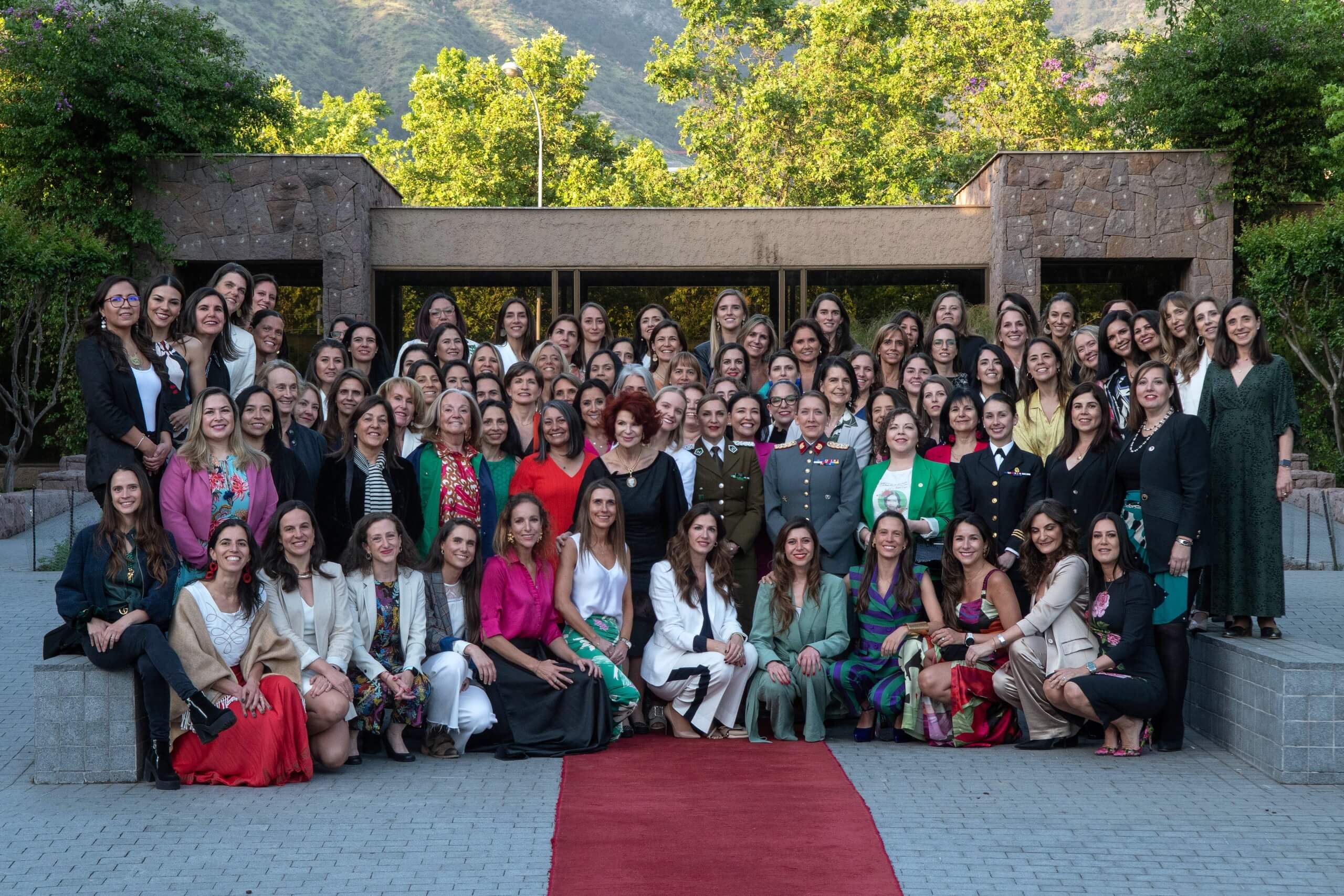This year there was a notable increase in applications to the Luksic Scholars Fund, which supports initiatives of the members of the Luksic Scholars Community in order to continue fostering the professional and personal development of individuals who have participated in Luksic Scholars programs. The total amount of funding available increased from $50,000 USD to approximately $72,000 USD.
FOR DETAILS ON THE SELECTED PROJECTS
A course on digital transformation, an innovation network in teaching for nutritionist training, a book on transfer pricing, and a study on the impact of Pro-Entrepreneurship Public Policies on the survival of enterprises in Chile, are part of the projects selected in The Luksic Scholars Fund 2023.
The initiative was created in 2021 with the aim of continuing to provide continuous support to members of the Luksic Scholars Community after they have participated in any of the academic programs offered by the organization. Scholars can receive up to $5,000 USD to develop initiatives in their areas of interest, thereby strengthening their leadership skills, acquiring competencies in key areas for their careers, or developing knowledge and research that contribute to their expertise.
This year, there was a significant increase in applications received by the Fund, reaching a total of 61 applications. Additionally, the funds to be distributed among the selected was increased to a total of approximately $72,000, in order to support more initiatives from the Community.
The panel responsible for evaluating each of the applications is formed by Georges de Bourguignon, co-founder and President of Asset Chile; Verónica Martini, Assistant Vice President for University Development at Columbia University; Steve Reifenberg, Professor of International Development at the Keough School of Global Affairs at the University of Notre Dame; and Manuela Sánchez, Director of the Luksic Foundation.
Of the 16 Luksic Scholars whose projects were selected, 13 are from Chile, more specifically residing in the regions of Antofagasta, Biobío, Coquimbo, La Araucanía, and Metropolitan. Additionally, this version included a recipient from the United States, one from Mexico, and one from Croatia.
Selected Initiatives – The Luksic Scholars Fund 2023
Name: Ariel Ávila.
Project: “Leading with Finance” course at Harvard University.
Luksic Scholars Program: Babson SEE Chile 2021.
Name: Beatriz Millan.
Project: “Impact of Pro-Entrepreneurship Public Policies on the Survival of Enterprises and Their Internationalization Strategies. The Case of Chile 2010 – 2021”.
Luksic Scholars Program: Babson SEE Chile 2014, Babson Luksic Fellows 2015.
Name: Catalina Balmaceda.
Project: Classical Numismatics in Chile.
Luksic Scholars Program: Faculty Exchange Luksic Grants 2020.
Name: Claudia Bugueño.
Project: Innovation and Research Network in Teaching for Nutritionist Training (RIID).
Luksic Scholars Program: Babson SEE Antofagasta 2023.
Name: Herman Bennett.
Project: Book on the topic “Transfer Pricing”.
Luksic Scholars Program: Babson SEE Chile 2023.
Name: Juan Pablo Ramaciotti.
Project: Analysis and Policy Proposals regarding the implementation of Visas for Seasonal Migrant Workers.
Luksic Scholars Program: London School of Economics, Master in Public Policy (MPP) – Luksic Scholarship 2020.
Name: Kristina Fister.
Project: Digital Transformation and Artificial Intelligence in Croatian Healthcare.
Luksic Scholars Program: Harvard Kennedy School Executive Education – Croatia 2019.
Name: Loreto Cox.
Project: Chile 50 Years after the Coup: Permanence and Change of Political Divisions across Generations.
Luksic Scholars Program: MIT Doctorate in Political Science – Luksic Fellowship 2013.
Name: Miguel Cortes.
Project: Specialization Course in Digital Transformation.
Luksic Scholars Program: Conducting Business in China – CMIX 2008.
Name: Natalie Meyers.
Project: Establishing a National Strategy and Roadmap for GO FAIR in Chile.
Luksic Scholars Program: Faculty Exchange Luksic Grants 2019.
Name: Rodrigo Perez.
Project: Creating Value through Design 3rd Edition.
Luksic Scholars Program: Babson SEE Chile 2023, Babson Luksic Fellows 2023.
Name: Samuel Fernandez.
Project: Dissemination of research results on the Council of Nicaea (325).
Luksic Scholars Program: Faculty Exchange Luksic Grants 2015.
Name: Sandra Arenas.
Project: Reception of the ecumenism of the Second Vatican Council in Temuco-Chile: public incidence in a plural religious context.
Luksic Scholars Program: Faculty Exchange Luksic Grants 2015.
Name: Sebastian Gonzalez.
Project: Transforming Classroom Teaching: Integrating Thinking Routines, High-Impact Practices, and Design Thinking for the Development of 21st Century Skills (Golden Skills).
Luksic Scholars Program: Babson SEE Chile 2023.
Name: Tesalia Rizzo.
Project: Between Citizens and the State: How Bureaucratic Transaction Costs Sustain Clientelism.
Luksic Scholars Program: MIT Doctorate in Political Science – Luksic Fellowship 2015.
Name: Silvana Cerda.
Project: Israel Innovation Experience 360° – From the Desert of Tel Aviv to Arica.*
Luksic Scholars Program: Babson SEE Antofagasta 2023, Babson Luksic Fellows 2023.
*The project has been temporarily suspended due to the recent circumstances in the area.
Note: The details and conditions of the projects mentioned in this publication are subject to modifications and updates. The Foundation reserves the right to alter any aspects of the projects as required to guarantee their efficacy and alignment with the overarching goals of the initiative.

